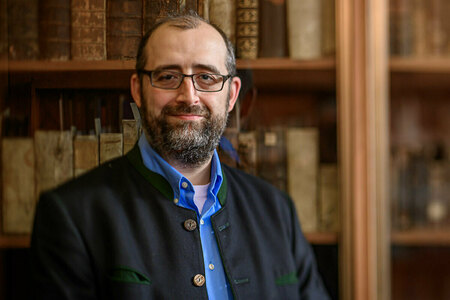
Ulrich L. Lehner, a leading expert on early modern Catholicism and the William K. Warren Foundation Professor in the Department of Theology, has been elected a member of Academia Europaea, also called the Academy of Europe.
Lehner said he’s grateful and humbled by the honor, but “being part of the Notre Dame family is the greatest honor of all.”
He’s in excellent company in Academia Europea; 75 Nobel Prize recipients are among its members, including the three 2021 laureates in physics.
Member scientists and scholars promote learning, education and research in the humanities, physical sciences, technology, biological sciences, medicine, mathematics, social and cognitive sciences, economics, and law. The academy promotes research, advises governments and international organizations, and furthers interdisciplinary and international research.
"This membership is a sign of the distinct recognition of my work within the European convocation of scholars,” said Lehner, who was made a member of the Class of History and Archaeology within the Humanities Section.
Lehner, who was also inducted into the Accademia Ambrosiana in Italy in 2018, specializes in religious history and theology of the early modern period, the Enlightenment, and the 19th century.
“I am already a member of the Class of World Religions within another academy — the European Academy of Sciences and Arts. Now, my work has been recognized in both fields of study, religious studies and history, and that is a rewarding experience,” he said.
His most recent books are The Inner Life of Catholic Reform. From the Council of Trent to the Enlightenment (Oxford, 2022); Think Better. Unlocking the Power of Reason (Baker, 2021); and God is Not Nice: Rejecting Pop Culture Theology and Discovering the God Worth Living For (Ave Maria, 2017).
“Without the outstanding support from my department, the College of Arts and Letters, and the University,” Lehner said, “I could not do the research which finds so much appreciation.”


